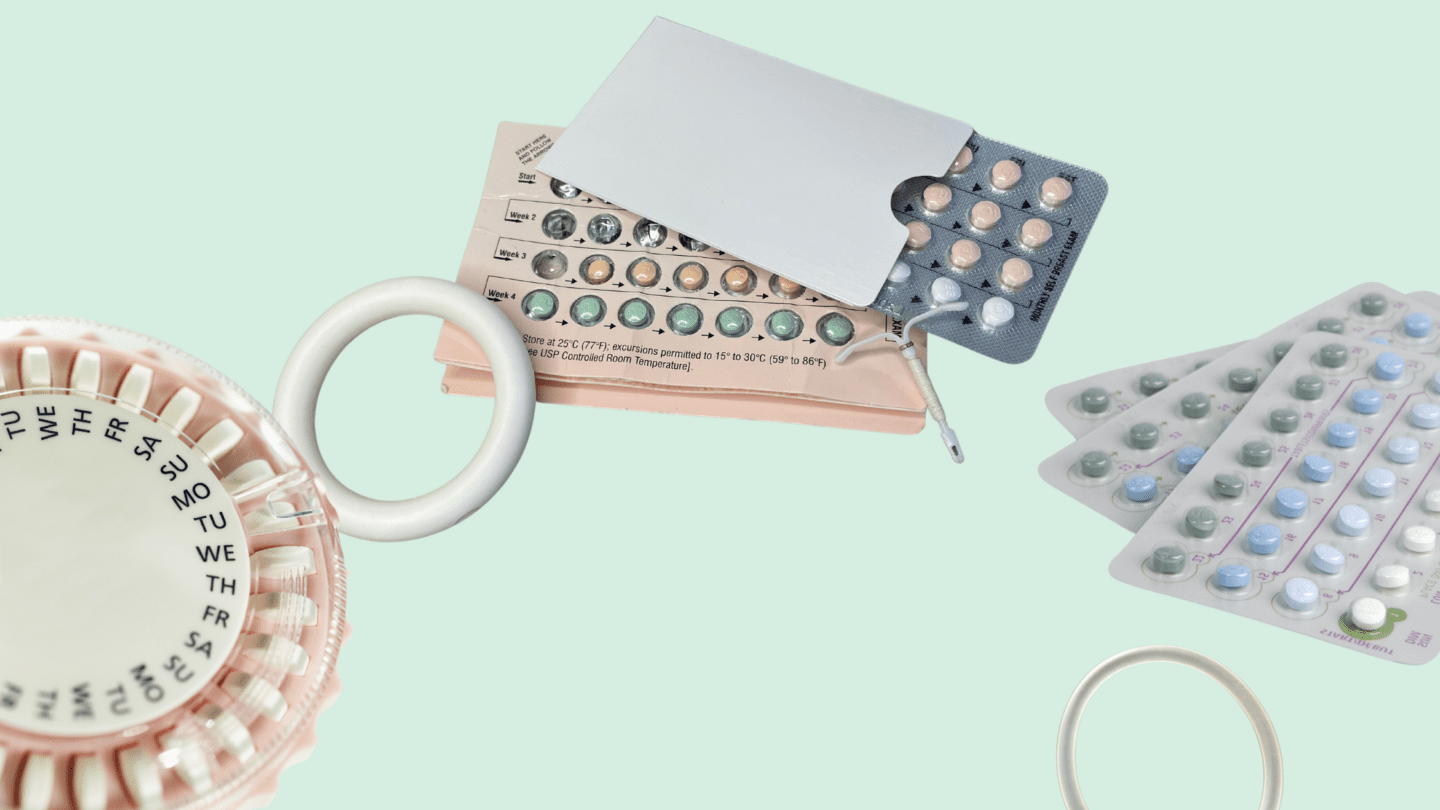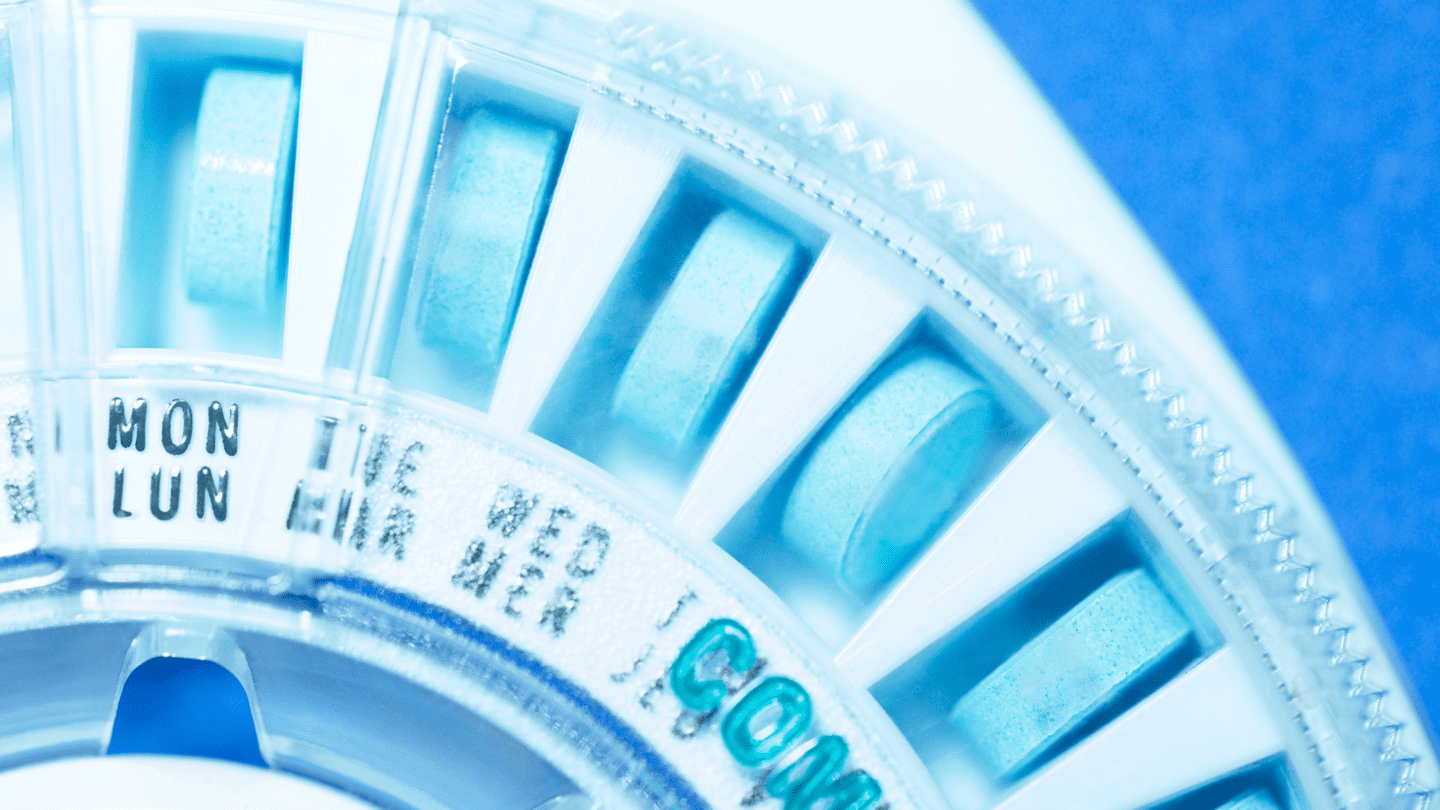When it comes to sex, can bring you peace of mind that you’re protected from pregnancies. Condoms are great for preventing STIs, and hormonal options like the pill, implant, and IUD can add an extra layer of protection if you’re planning to not get pregnant.
But it can be frustrating if you’ve started and feel like your sex life is suddenly duller than before. Maybe you haven’t been feeling up to sex when your partner initiates. Or perhaps you’ve felt like your is uncomfortably high, to the point where you can never satisfy your urges.
It’s not unusual to feel a bit off when starting new . Changes in are frequently associated with hormonal methods, though they don’t happen to everyone. Thankfully, there are some things you can do to change your situation if it’s affecting your quality of life.
Libido, explained
Libido, or sex drive, is simply your desire to have sex. But the underlying factors that control your are anything but simple.
As you probably know, hormones play a big role in regulating sexual function. That includes , which can fluctuate throughout your monthly cycle. That’s one reason why you might feel your sex drive change slightly day to day or week to week.
In all people, is the main hormonal driver of your desire to have sex.1 It might have a reputation as the so-called male , but studies show that low often correlates with low sex drive in people assigned female at birth.2-3 Likewise, replacement therapy can help some AFAB people with low levels of the – typically during – raise their .4
But sex drive isn’t only about sex hormones. Other factors, such as your mental and physical health, self esteem, relationship satisfaction, and general life stressors can alter your drive for sex.5
Stress can especially tank your , as can mental health conditions like depression.6 Some medications also affect it, so check your labels if you’ve experienced changes after starting a new regimen.
There is no “right” or “wrong” level of that a person can have.
However, note that there is no “right” or “wrong” level of that a person can have. Everyone is different; some people desire sex several times a day, while others are satisfied going weeks or months without it. changes are only a problem if they strain your relationships and interfere with your quality of life.
Does lower sex drive?
While it’s not the most common symptom, some people do report changes on .7-8 Both an increase and decrease in has been recorded in scientific studies, though most people on don’t experience any change at all.9
Lower sex drive is likely influenced by hormonal changes when on , though more research is needed to fully understand the cause and effect. Many methods, such as the oral contraceptive pill, use two hormones to prevent pregnancy: and . Increased production of these hormones can lower the level of s in the body, which is the class of hormones that contains .10-11
And fewer s, in return, could mean lower desire for sex. But remember, is influenced by a variety of factors – not just sex hormones. When it comes to oral in particular, there isn’t a clear pattern between and . People’s experiences tend to be all over the map.
Libido is influenced by a variety of factors – not just sex hormones.
A scientific report from 2004 that looked at results of 30 different studies found people had mixed experiences on the pill; some reported higher , others lower, and many no change at all.9 Another review from 2012 found essentially the same thing, with the vast majority of people experiencing no changes on various forms of hormonal birth control, and others finding that they did affect their sex drive.12
But overall, the relationship between on is not thoroughly studied. Some researchers even argue that there isn’t enough information to draw a conclusion on the impacts of on sex drive.13,12 Those gaps in knowledge can be frustrating if you are struggling with changes and looking for a clear answer. But there are a few things you can do to find relief.
Is adyn right for you? Take the quiz.
Can you increase your sex drive on ?
Altering your sex drive greatly depends on what’s causing it to be lower or higher than normal. Remember, it’s a multifaceted process that combines hormones and external factors.
First, it can help to determine if there are any particular stressors or conditions that might be impacting your desire for sex. Are you going through a particularly rough time at work, school, or in your personal life? Even if you feel like you’ve adjusted to high levels of stress, being under pressure for extended periods of time can have a multitude of consequences for your body – including sexual desire and function.14-15
Consider medications and health conditions, as well. It might be worth seeking professional help from a therapist if you have continued low moods or lack of interest in things you normally enjoy, such as sex.
And don’t write off relationship problems, either. If you’ve been struggling to feel comfortable with your partner or lack interest in sex with them, it could be a sign of underlying interpersonal problems that have yet to be resolved.
Like what you’re reading? Get the latest straight to your inbox 💌
However, if you’ve noticed a worrisome change in your sex drive since starting hormonal birth control, it might be worth switching methods. Your quality of life is no small matter; you shouldn’t have to compromise your basic needs in order to avoid pregnancy.
Some people find different hormonal methods to be more compatible with their bodies. If you have a bad experience on the pill, for example, you could try the progestin-only mini-pill, implant, or IUD. Non-hormonal methods like the copper IUD are also a good option for long-term use, though they are sometimes associated with changes as well.9 And there are always condoms, which are easily available and still highly effective at preventing pregnancy when used perfectly.
You might even find that your is affected by a combination of factors, such as and mental health and relationship issues. Just make sure to consider all the factors that can make your fluctuate for a safe and satisfying sex life.
-
- Calabrò, Rocco S., et al. “Neuroanatomy and function of human sexual behavior: A neglected or unknown issue?” Brain and Behavior 9.12 (2019): e01389.
- Davis, Susan R., and Jane Tran. “Testosterone influences libido and well being in women.” Trends in Endocrinology & Metabolism 12.1 (2001): 33-37.
- Turna, B. U. R. A. K., et al. “Women with low libido: correlation of decreased androgen levels with female sexual function index.” International Journal of Impotence Research 17.2 (2005): 148-153.
- Lobo, Rogerio A., et al. “Comparative effects of oral esterified estrogens with and without methyltestosterone on endocrine profiles and dimensions of sexual function in postmenopausal women with hypoactive sexual desire.” Fertility and Sterility 79.6 (2003): 1341-1352.
- Bodenmann, Guy, et al. “The association between daily stress and sexual activity.” Journal of Family Psychology 24.3 (2010): 271.
- Rajkumar, Ravi Philip, and Arun Kumar Kumaran. “Depression and anxiety in men with sexual dysfunction: a retrospective study.” Comprehensive Psychiatry 60 (2015): 114-118.
- Cooper, D. B., P. Patel, and H. Mahdy. “Oral contraceptive pills.” Stat Pearls [Internet]. Treasure Island (FL): Stat Pearls Publishing (2022). [Updated 2021 Feb 25]
- Boozalis, Ms Amanda, et al. “Sexual desire and hormonal contraception.” Obstetrics and Gynecology 127.3 (2016): 563.
- Davis, Anne R., and Paula M. Castaño. “Oral contraceptives and libido in women.” Annual Review of Sex Research 15.1 (2004): 297-320.
- Cleveland Clinic. “Androgens.” MyClevelandClinic.org (2021 Oct 24): Last accessed 2022 Dec 10.
- Zimmerman, Yvette, et al. “The effect of combined oral contraception on testosterone levels in healthy women: a systematic review and meta-analysis.” Human Reproduction Update 20.1 (2014): 76-105.
- Burrows, Lara J., Maureen Basha, and Andrew T. Goldstein. “The effects of hormonal contraceptives on female sexuality: A review.” The Journal of Sexual Medicine 9.9 (2012): 2213-2223.
- Schaffir, Jonathan. “Hormonal contraception and sexual desire: a critical review.“ Journal of Sex & Marital Therapy 32.4 (2006): 305-314.
- Hamilton, Lisa Dawn, and Cindy M. Meston. “Chronic stress and sexual function in women.” The Journal of Sexual Medicine 10.10 (2013): 2443-2454.
- Morokqff, Patricia J., and Ruth Gillilland. “Stress, sexual functioning, and marital satisfaction.” Journal of Sex Research 30.1 (1993): 43-53.








